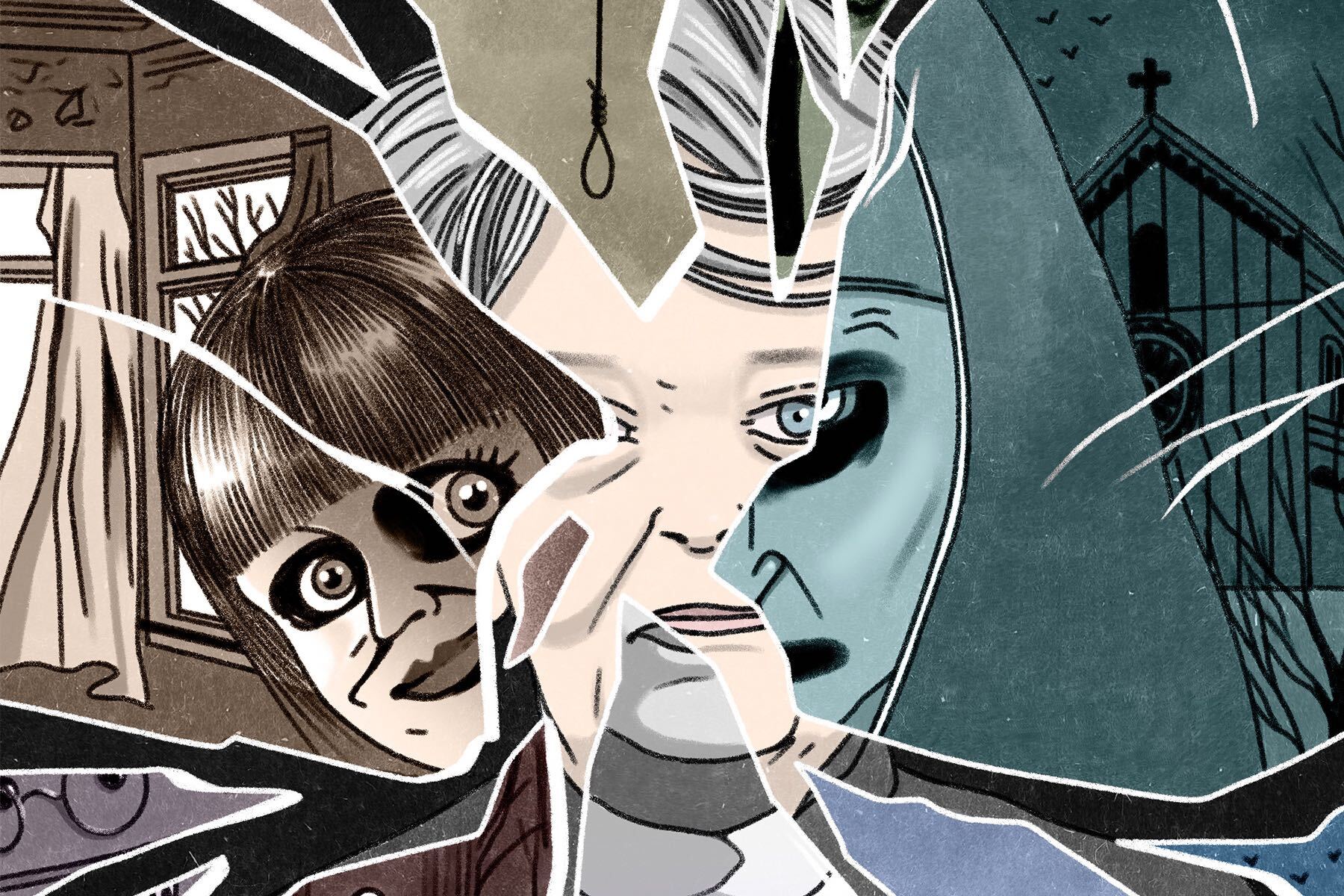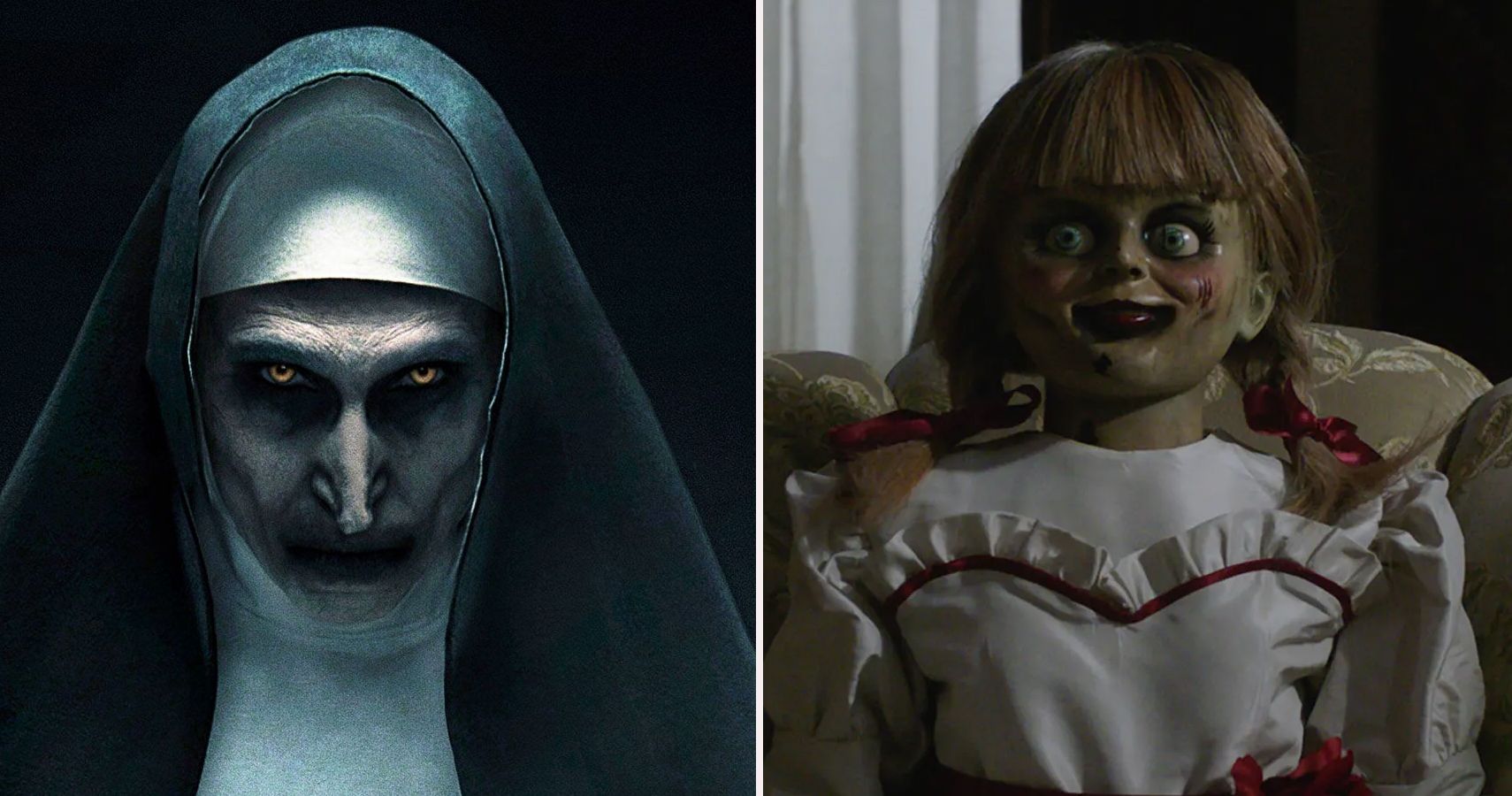Ever wondered if The Conjuring is based on real events? Well, buckle up, because we're diving deep into one of the most iconic horror franchises ever made. The Conjuring series has terrified millions worldwide, but is it all fiction, or are there real-life horrors lurking behind those spine-chilling tales? In this article, we’ll uncover the truth, separate fact from fiction, and explore what makes The Conjuring so hauntingly believable.
Let’s face it—the world of horror movies is packed with over-the-top gore, cheesy jump scares, and plots that stretch credibility thin. But The Conjuring? Oh, it’s different. This franchise takes pride in being grounded in reality—or at least claiming to be. So, is it all true? Or just Hollywood magic? Let’s find out.
If you’re here, chances are you’re a fan of the supernatural, ghost stories, or just plain old scares. The Conjuring isn’t just about haunted dolls and creepy clowns; it’s about the Warrens, real-life paranormal investigators whose cases inspired these movies. Spoiler alert: some of it’s real… but not all of it. Now, let’s get started.
Table of Contents
- Introduction
- History of the Warrens
- The Conjuring Movies
- Is The Conjuring Based on Real Events?
- The Amityville Horror Connection
- The Annabelle Story
- The Crooked Man
- The Enfield Poltergeist
- Criticism and Controversy
- Why People Believe in The Conjuring
- Conclusion
History of the Warrens
Ed and Lorraine Warren were no ordinary couple. They weren’t just your everyday paranormal investigators; they were legends in the world of ghost hunting. These two claimed to have investigated thousands of cases over their careers, documenting everything from poltergeists to demonic possessions. Their work became the foundation for The Conjuring universe, and their reputations as paranormal experts were solidified in pop culture.
Who Were Ed and Lorraine Warren?
Ed Warren was a self-proclaimed demonologist, while Lorraine was a psychic and medium. Together, they founded the New England Society for Psychic Research in Connecticut. They worked tirelessly to document and investigate cases of supernatural phenomena, often collaborating with religious authorities and law enforcement.
Here’s a quick rundown of their most famous cases:
- Amityville Horror: A case involving a supposedly haunted house in New York.
- Annabelle: A cursed doll that allegedly terrorized a family in Rhode Island.
- Enfield Poltergeist: A case of alleged demonic activity in London, England.
But were they legit? That’s the million-dollar question we’ll explore throughout this article.
The Conjuring Movies
The Conjuring series, directed by James Wan, has become a cultural phenomenon. With its gripping storytelling, chilling atmospheres, and terrifying creatures, it’s no wonder the franchise has grossed billions worldwide. But what makes these movies stand out is their claim to be based on true events.
What Makes The Conjuring Stand Out?
Unlike many horror franchises, The Conjuring isn’t just about creating scares for the sake of it. Each movie is carefully crafted to feel authentic, drawing inspiration from real-life cases investigated by the Warrens. The attention to detail, combined with outstanding performances by Patrick Wilson and Vera Farmiga as Ed and Lorraine, makes the films incredibly immersive.
Here’s a breakdown of the main movies in the franchise:
- The Conjuring (2013): The Perron family’s haunting in Rhode Island.
- The Conjuring 2 (2016): The Enfield Poltergeist case in England.
- Annabelle (2014): The cursed doll that became a symbol of terror.
- Annabelle Comes Home (2019): More Annabelle chaos.
Is The Conjuring Based on Real Events?
This is where things get interesting. While The Conjuring claims to be based on true stories, not everything you see on screen is 100% accurate. Let’s break it down:
Fact vs. Fiction
Some elements of The Conjuring are indeed based on real-life events. For example, the Perron family did experience strange occurrences in their Rhode Island home, and the Warrens were involved in investigating the case. However, the movies take creative liberties to enhance the drama and scares.
Take Annabelle, for instance. The doll’s story is loosely based on real events, but the movie version adds layers of fiction to make it more terrifying. The Warrens claimed the doll was cursed and kept it in their artifact room, but the extent of its powers is debatable.
The Amityville Horror Connection
One of the most famous cases associated with the Warrens is the Amityville Horror. While the movie version of Amityville is mostly fiction, the Warrens were involved in the investigation. They claimed the house was haunted, but many skeptics argue it’s all a fabrication.
What Really Happened in Amityville?
In 1974, Ronald DeFeo Jr. murdered his entire family in their home in Amityville, New York. The subsequent occupants, the Lutz family, claimed the house was haunted, leading to the infamous Amityville Horror story. The Warrens investigated the case, but their findings have been heavily criticized by skeptics.
So, was Amityville really haunted? Or was it just a clever marketing scheme? You decide.
The Annabelle Story
Annabelle is arguably the most famous entity from The Conjuring universe. But is she real? Sort of. The Warrens claimed the doll was cursed and responsible for terrifying a young couple in Rhode Island. The couple reported strange occurrences, including the doll moving on its own and speaking.
Is Annabelle Still Haunted?
Today, Annabelle resides in the Warrens’ artifact room, encased in a glass display. The Warrens claim the doll is still active, and they regularly perform rituals to keep it contained. However, skeptics argue it’s all a hoax designed to generate publicity.
The Crooked Man
One of the most terrifying creatures in The Conjuring 2 is the Crooked Man. While the movie portrays him as a demonic entity, the real story is a bit more grounded. The Crooked Man is based on a figure from a children’s rhyme, but his appearance in the movie is purely fictional.
Why Was the Crooked Man Created?
The Crooked Man was added to The Conjuring 2 to enhance the horror factor. While he’s not based on a real entity, his design and backstory make him one of the most memorable villains in the franchise.
The Enfield Poltergeist
The Enfield Poltergeist is one of the most famous cases in paranormal history. It involves a family in England allegedly plagued by poltergeist activity in the late 1970s. The Warrens were called in to investigate, and their findings became the basis for The Conjuring 2.
What Happened in Enfield?
The Hodgson family reported strange occurrences in their home, including furniture moving on its own, voices coming from nowhere, and levitation. The Warrens claimed the house was haunted by a demonic entity, but skeptics argue the events were likely caused by the children’s subconscious abilities or even fraud.
Criticism and Controversy
While the Warrens and The Conjuring franchise have garnered massive popularity, they’ve also faced criticism. Skeptics argue the Warrens exaggerated their findings to gain fame and fortune. Some even claim their methods were unscientific and lacked credibility.
Are the Warrens Legit?
Here’s the thing: the Warrens believed in what they were doing, and they documented countless cases. But that doesn’t mean everything they claimed was true. Paranormal investigations are inherently subjective, and without concrete evidence, it’s hard to prove or disprove their claims.
Why People Believe in The Conjuring
Despite the controversies, millions of people believe in The Conjuring. Why? Because the franchise taps into our deepest fears and insecurities. The idea of demons and spirits lurking in the shadows is both terrifying and fascinating. Add in the Warrens’ claims of authenticity, and you’ve got a recipe for success.
What Makes The Conjuring So Believable?
A few factors contribute to The Conjuring’s believability:
- Real-Life Cases: The movies are based on actual investigations by the Warrens.
- Attention to Detail: The filmmakers go to great lengths to recreate the events accurately.
- Relatable Characters: The Warrens and the families they help are portrayed as ordinary people facing extraordinary circumstances.
Conclusion
So, is The Conjuring real? The answer is complicated. While the franchise is based on real-life cases investigated by Ed and Lorraine Warren, not everything you see on screen is 100% accurate. The Warrens believed in their work, but skeptics argue their findings were often exaggerated or fabricated.
Regardless of whether you believe in the supernatural, The Conjuring remains one of the most successful horror franchises of all time. Its ability to blend fact and fiction creates a compelling narrative that resonates with audiences worldwide.
What do you think? Do you believe in The Conjuring? Or do you think it’s all a clever marketing ploy? Let us know in the comments below, and don’t forget to share this article with your friends who love a good scare!


